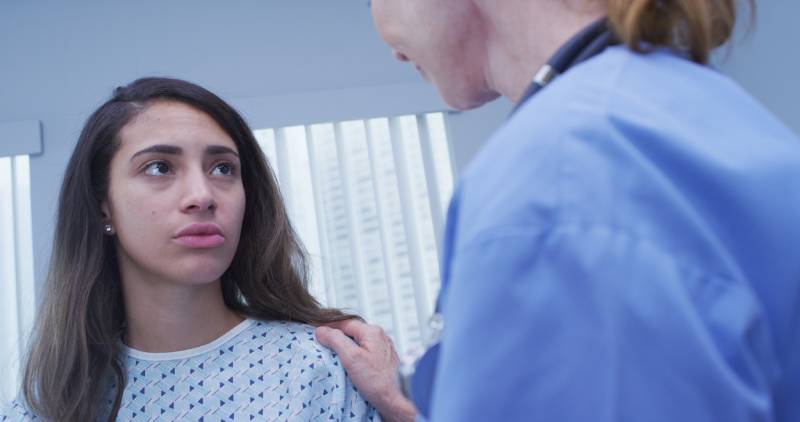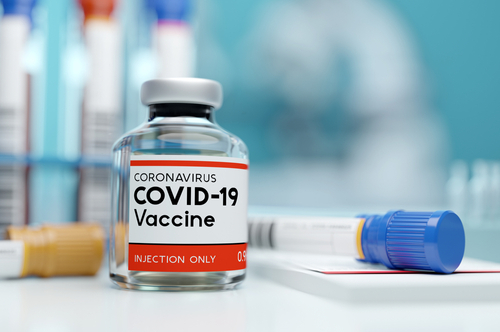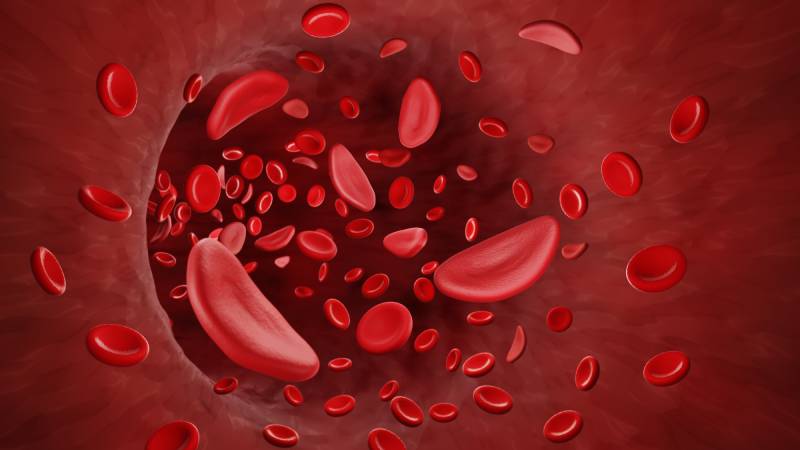
The strategy used to screen for depression in adults with sickle cell disease (SCD) is an important consideration for health care providers, as a new study suggests that nurse-administered and self-administered screening techniques can show different results.
The results from the study, conducted by a team from the Ohio State University College of Medicine, were presented during the 65th American Society of Hematology Annual Meeting and Exposition. SCD, which is an inherited blood disorder, affects around 100,000 people in the United States. It was important to conduct the research on depression screening in this population because adults with SCD have a “significant burden of depression” that can “adversely affect their quality of life, the clinical course of their [SCD], and mortality,” the researchers said. While national guidelines recommend annual screening for depression in adults, those with SCD “may not report symptoms routinely in the clinic since they can be stigmatized,” making depression screening critical for this population, according to the presenters.
Depression screening can be done in multiple ways. For example, the 9-item Patient Health Questionnaire (PHQ-9) can be self-administered on paper or a tablet or administered by health care providers.
With multiple options for screening, the researchers wanted to address the knowledge gap regarding the “optimal strategy to screen for depression” in patients with SCD. They hypothesized that “the strategy of a self-administered depression screening questionnaire PHQ-9 on a tablet during clinic would have more positive screenings for depression than the strategy of asking the PHQ-9 questions by nurses.”
Researchers recruited adults with any type of SCD between January 1, 2021, and March 31, 2023. The study participants were part of a prospective cohort of adults with SCD in a patient-centered medical home who had an integrated primary care provider at the Ohio State University Wexner Medical Center Comprehensive Sickle Cell Clinic. The patients used tablets to self-administer the PHQ-9 and were asked the questions by the clinic’s nursing staff.
The total score on the PHQ-9 determined if the screening was positive and provided information about the severity of depression. A score of 5 to 9 represented mild depression, a score of 10 to 14 represented moderate depression, a score of 15 to 19 represented moderately severe depression, and a score of 20 to 27 represented severe depression.
The self-administered PHQ-9 scores revealed that 48% screened positive for depression, double the rate of 24% with the nurse-administered PHQ-9 (P=.02). The study showed that the categorization of the severity of depression varied between self- and nurse-administered screening methods, with more participants having elevated categories of depression when they self-administered the test. The mean PHQ-9 score was also higher with the self-administered PHQ-9 (mean, 5.6) than the clinic-administered PHQ-9 (mean, 3.32; P=.03).
“Our study is the first to demonstrate the importance of the strategy of screening for depression in adults with [SCD],” the researchers said. “Lower levels of depression were reported when nurses screened for depression compared to when adults with [SCD] completed the questionnaire independently.”
The study’s limitations included its single-center nature and the selection bias of only including patients who were presenting at the SCD clinic. The authors noted the need for future multicenter studies on the topic.
The authors outlined the research implications for clinical practice. “The PHQ-9 is commonly used to screen for depression, but depending on the clinic, the administration of the questionnaire may differ, which may lead to suboptimal screening for depression,” they concluded. “Identifying the optimal strategy for screening for depression is crucial in this population with a high burden of depression, as depression can ultimately affect their outcomes.”
Reference
Lysandrou M, Quaye N, and Cronin R. Evaluating different strategies to screen for depression in sickle cell disease. Abstract #1150. Presented at the 65th American Society of Hematology Annual Meeting and Exposition; December 9-12, 2023; San Diego, California.







 © 2025 Mashup Media, LLC, a Formedics Property. All Rights Reserved.
© 2025 Mashup Media, LLC, a Formedics Property. All Rights Reserved.